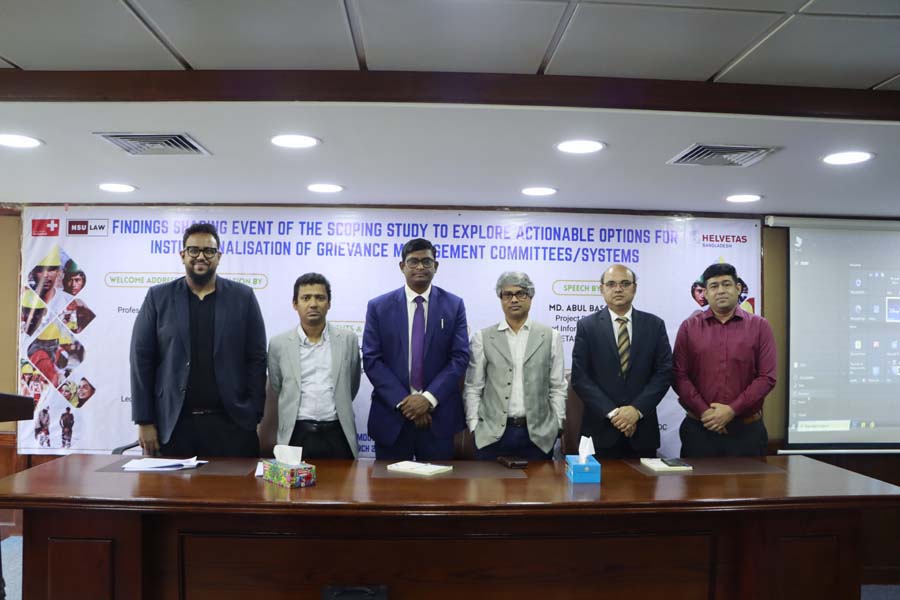
Published :
Updated :

Professor Md. Rizwanul Islam and Mr. Nafiz Ahmed of the Department of Law, North South University, have conducted a scoping study to explore actionable options for the institutionalisation of Grievance Management Committees or Systems.
The findings of the study report were shared in a programme at the university on Saturday, says a media release.
The GMC is a model of resolving disputes related to migrant workers through mediation, implemented by Helvetas Bangladesh’s Strengthened and Informative Migration System (SIMS) project.
It works with a combination of the elected representatives at the Union level and the representatives of NGOs. It is designed to offer an expeditious voluntary solution to workers' migration-related grievances, which fall under the category of compoundable matters.
Such grievances are related to any deception by sub-agents of the recruiting agencies, taking of money or other valuable things with a false promise of sending people abroad, seizing their passports, visas, or other related papers, or inducing someone to sign a contract to send her/him abroad with a deceptive promise of high salary or some other related false promise, or any dealings regarding the migration-related contract between relatives.
This often helps them in cases where there may not have been adequate formal documentary evidence to pursue a formal claim in a court of law.
The study is based on a review of the relevant laws and policy instruments of the government. It also reviews the relevant international legal provisions.
The study observes that the GMC model may be integrated into the existing legal aid framework or village court framework.
The study also notes that a model like GMC may also contribute to the ethos of decentralisation as enshrined in the Constitution of Bangladesh and also mentioned in various policy instruments of the government starting from the first five year plan (1973-1978) of the government.
While attending the sharing event, Barrister Shameem Haider Patwary, co-chairperson, of Bangladesh Parliamentarians’ Caucus on Migration and Development, in his speech, expressed his regret that Bangladesh has not yet been able to ensure proper access to justice for the migrant workers despite their huge contribution to the economy.
He opined that the GMC model may be a good way to resolve disputes in which migrant justice seekers do not have inadequate documentation in support.
Mr. Md. Abul Basar, project director, SIMS, stressed the importance of developing a self-sustainable way of resolving migrant justice seekers’ grievances.
Academics, journalists, NGO representatives, lawyers, and students were present at the event.


 For all latest news, follow The Financial Express Google News channel.
For all latest news, follow The Financial Express Google News channel.